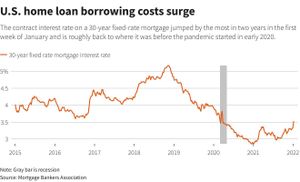Israeli Prime Minister Benjamin Netanyahu has embarked on a significant trip to Washington, D.C., with high-stakes negotiations scheduled with U.S. President Donald Trump. This visit, which commenced on February 2, 2025, holds considerable weight as it marks Trump's first meeting with any foreign leader since his return to the Oval Office. Netanyahu underscored the importance of this occasion, describing the invitation to meet with Trump as "telling" and as evidence of the enduring strength of the Israeli-American alliance.
The agenda for their discussions is ambitious, focusing primarily on the fragile status quo concerning the Gaza ceasefire, alongside broader issues impacting the Middle East, such as Iran's threats and the prospects for diplomatic normalization agreements between Israel and Arab nations. During his departure, Netanyahu articulated his goals succinctly: "We're going to discuss victory over Hamas, achieving the release of all our hostages, and dealing with the Iranian terror axis." These topics come amid unprecedented regional turbulence, partly fueled by past hostilities and the recent cessation of violence following intense military confrontations.
This week's meetings arrive on the heels of the U.S. and Arab mediation efforts aimed at establishing the next phase of the ceasefire agreement with Hamas. The accord, which just recently facilitated the release of several hostages and thousands of Palestinian detainees, has drastically shifted the dynamics, especially following the catastrophic violence seen throughout late 2023. Since hostilities escalated on October 7, 2023, the toll has been staggering, with over 47,000 Palestinians reported dead—many of whom were civilians—and approximately 90% of Gaza's population displaced.
Netanyahu, under pressure from his far-right coalition partners to escalate military responses post-ceasefire, remains firmly anchored to the objective of vanquishing Hamas. This goal aligns with Trump's vision of "peace through strength," which has been central to his Middle East policy. The question of whether to allow Hamas any semblance of authority or control as part of any future governance structure has already sparked significant controversy, with Israeli officials asserting they will not allow any "shadow authority" akin to what Hezbollah maintains in Lebanon.
Meanwhile, Trump’s foreign policy has leaned toward facilitating broad peace agreements, with whispers of potential diplomatic ties between Israel and Saudi Arabia. Such talks, should they materialize, hinge heavily on ending the violence and establishing clear pathways to Palestinian statehood—a sensitive topic within Netanyahu's current government, marked by staunch opposition to the establishment of such sovereignty.
Netanyahu's statements suggest he is acutely aware of the delicate balance he must strike: "The decisions we’ve made in the war have already changed the face of the Middle East," he noted, as he acknowledges the regional ramifications of Israeli policy. He is cognizant too of the broader perspectives involving Arab nations, many of which swiftly rejected ideas of forced Palestinian displacement as part of any American-led initiative.
The backdrop of this visit also features discussions between Trump and leaders of countries such as Egypt and Jordan, who have iteratively expressed their skepticism toward proposals perceived as infringing on Palestinian rights. The Egyptian government, particularly, has been vocal against any plans to evacuate residents from Gaza, framing it as unacceptable. There remains considerable pushback against proposals for relocating Gazans, with more than just humanitarian concerns at play—regional stability depends on perceptions of fairness and justice.
Negotiations are set to either cement the ceasefire's second phase or dissolve back to full hostilities, depending on the outcomes of meetings held this week. The complexity of returning hostages, ensuring regional security against Iranian encroachment, and determining the future governance of Gaza remains precarious. With negotiations poised to begin shortly following Netanyahu's high-profile meetings, the outcomes will significantly shape the future course of Israeli-Palestinian relations.
Should Trump and Netanyahu forge clarity on cooperation moving forward, the ramifications could either alleviate tensions or exacerbate them, depending on the global response and local interpretations of these negotiations. Expectations are elevated, but so too are the risks as both leaders navigate this politically charged and desperate situation.



